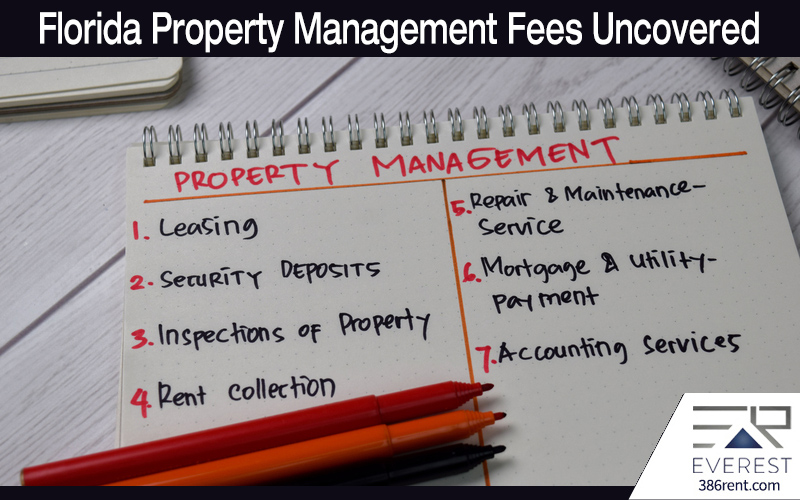Delving into the realm of property management, a comprehensive understanding of the average fees associated with the service is indispensable for both property owners and managers alike. This all-encompassing guide sheds light on the multitude of factors that influence property management fees, ultimately empowering you to make well-informed decisions when seeking a proficient property manager to oversee your real estate investments.
The Indispensable Role of Property Management
Property management serves as a pivotal element in the realm of real estate investment, as it guarantees the seamless operation and upkeep of your properties. A consummate property manager is responsible for maintaining tenant relations, collecting rent, overseeing maintenance and repairs, and even addressing legal matters, thereby allowing property owners to concentrate on their primary business ventures.
The Diversity of Property Management Fee Structures Property management companies often employ a variety of fee structures, which include:
Fixed-Percentage Fee
As the most prevalent fee structure, this approach involves charging a predetermined percentage of the monthly rent collected from tenants. Typically, the industry average falls within the range of 8% to 12%.
Flat Fee
Alternatively, some property managers opt for a consistent flat monthly fee, which remains unaffected by fluctuations in rental income.
Hybrid Fee Structure
A bespoke fusion of percentage and flat fee, this fee structure is designed to accommodate the unique requirements of individual clients.
The Multifarious Factors Affecting Property Management Fees
A myriad of factors impact the average property management fee, encompassing:
Location
The fees charged by property management companies tend to vary depending on the geographical location of the property. In areas characterized by elevated living costs, these fees might be higher.
Property Size
The size and complexity of a property can exert a significant influence on the fees levied by a property manager. Larger properties often necessitate greater resources and time, culminating in higher fees.
Services Offered
The gamut of services provided by a property management company also plays a crucial role in determining the fees. A company that offers an extensive array of services may impose higher charges than one that caters to a limited selection.
Competition
The density of property management companies operating within a specific area can have a bearing on the fees, as companies might reduce their rates to retain a competitive edge.
The Array of Supplementary Fees to Contemplate
Property management companies might impose additional fees for particular services, such as:
Tenant Placement Fee
Levied when a property manager locates and screens prospective tenants, this fee typically oscillates between half to one full month's rent.
Lease Renewal Fee
This fee is charged for negotiating lease renewals with incumbent tenants and generally ranges from $200 to $500.
Maintenance and Repair Markups
Certain property managers might impose a markup on maintenance and repair services, which is subsequently added to the aggregate cost of the service.
Eviction Fee
For managing tenant evictions, property managers may impose a fee that varies from $300 to $700.
The Art of Negotiating Property Management Fees
Property management fees can often be subject to negotiation. To secure the most advantageous deal possible, consider the following:
Comparing Quotes
By procuring quotes from an array of property management companies, you can gain a better understanding of the average fees in your vicinity.
Assessing Services
It is essential to ensure that the services rendered by the property management company are in alignment with the specific needs of your property.
Broaching Discounts
Inquire whether the property manager offers any incentives for bundling services or for managing a portfolio of multiple properties.
Conclusion:
Gaining a thorough understanding of average property management fees is of paramount importance for property owners and investors who are seeking to engage a skilled property manager. By taking into account aspects such as fee structures, property size, location, and ancillary fees, you can make informed decisions that enable you to secure the most favorable deal for your real estate investments. With this knowledge in hand, you can confidently navigate the complexities of property management fees and build a solid foundation for your real estate success.
If you’d like to talk more about property management, or you need help with Everest Property Management, please contact us at Everest Realty.




 As a top producing Realtor and Property Manager; Terry specializes in sales, extensive construction homes, rentals, REO’s, short sales, and all aspects of Real Estate. After graduating the University of Michigan with a master in MBA, Terry continued his endeavor and now has over 15+ years of experience in the Real Estate world. If there is anything that has to do with Real Estate and sales, you can always be sure of Terry to provide important, specialized knowledge.
As a top producing Realtor and Property Manager; Terry specializes in sales, extensive construction homes, rentals, REO’s, short sales, and all aspects of Real Estate. After graduating the University of Michigan with a master in MBA, Terry continued his endeavor and now has over 15+ years of experience in the Real Estate world. If there is anything that has to do with Real Estate and sales, you can always be sure of Terry to provide important, specialized knowledge.




